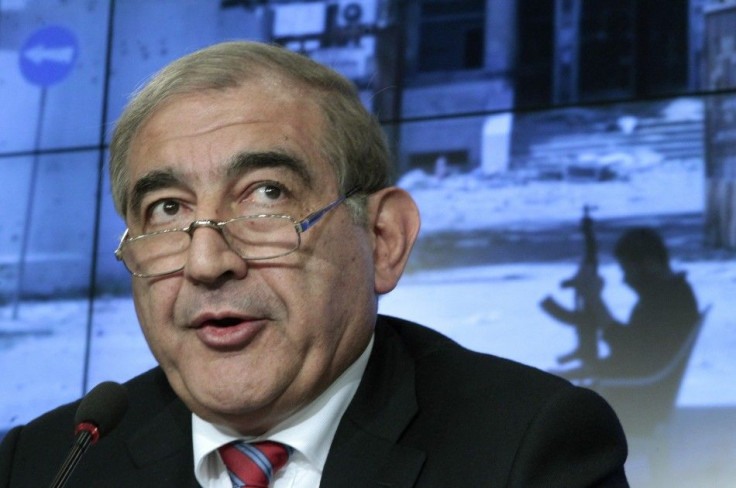Assad Departure On The Table: Syrian Official

A top Syrian said Tuesday the government is prepared to discuss the exit of President Bashar al-Assad, but his resignation cannot be a precondition for talks.
Speaking on a visit to Moscow, Deputy Prime Minister Qadri Jamil also said the West "is looking for a pretext to intervene militarily," the BBC reported.
Echoing Russia's foreign minister, he said there must be no foreign intervention.
The comments follow President Barack Obama's warning that the U.S. may intervene if Syria uses chemical weapons. On Monday, Obama said the deployment of chemical weapons represented a "red line" for the U.S.
Following talks with China's top diplomat and a Syrian delegation including Jamil, Russian Foreign Minister Sergei Lavrov said only the U.N. Security Council could authorize the use of force against Syria and warned against imposing "democracy by bombs." Russia and China have consistently blocked any action by the council.
At a press conference, Jamil warned that "any direct military intervention in Syria is impossible. Those who contemplate it are rushing into a much wider confrontation, one that goes beyond the Syrian borders."
Jamil said the West was seeking an excuse to intervene, likening the focus on Syria's chemical weapons to the U.S. push to invade Iraq in 2003, invoking what proved to be groundless suspicions that Saddam Hussein was concealing weapons of mass destruction, Reuters reported.
Although the Assad regime has said in the past that it is open to unconditional negotiations, Jamil went further by explicitly saying everything could be discussed, including the resignation of Assad.
Meanwhile In Lebanon, at least five people were killed in sectarian violence linked to the Syria conflict Tuesday, and Turkey, an opponent of Assad, investigated possible Syrian involvement in a car bomb that killed nine people on Monday.
On a new front, government troops and tanks overran the Damascus suburb of Mouadamiya on Tuesday, the second day of an offensive to regain control of the area, Reuters reported.
Activists said Assad's forces had killed at least 70 people in Mouadamiya since Monday. They included some two dozen men who had been executed and 16 people killed in a helicopter gunship attack on a funeral for victims of Monday's violence.
"The mourners set off with 19 bodies and came back with 35," Hayat, one of the activists, said from the suburb.
Another resident, speaking to Reuters by telephone, said he had counted the bodies of some two dozen men who had been executed. "They were not killed by bombardment, their hands were tied and they were burnt and killed by knives," he said. Bodies were found in basements and looted premises, activists said.
State-imposed curbs on media made it impossible to verify the reports of the violence.
In Lebanon's northern city of Tripoli, seven people were killed as clashes between Sunni Muslims and Alawites, fueled by tensions in nearby Syria, continued for a second night, security and medical sources said Tuesday.
Around 100 people have also been wounded since the fighting erupted on Monday evening, they said.
Gunmen in the Sunni district of Bab al-Tabbaneh and their Alawite rivals in Jebel Mohsen have exchanged gun and grenade fire, despite action by Lebanese troops deployed in the port city, residents said.
Two of the dead men were identified as residents of Jebel Mohsen, a hill inhabited mainly by Alawites which overlooks the predominantly Sunni area below, where five people were killed, medical sources said.
The area is one of Lebanon's most volatile sectarian fault lines and chronic Sunni-Alawite tensions in Tripoli have been heightened by the 17-month-old, mainly Sunni, uprising in Syria against Assad, an Alawite.
© Copyright IBTimes 2024. All rights reserved.





















